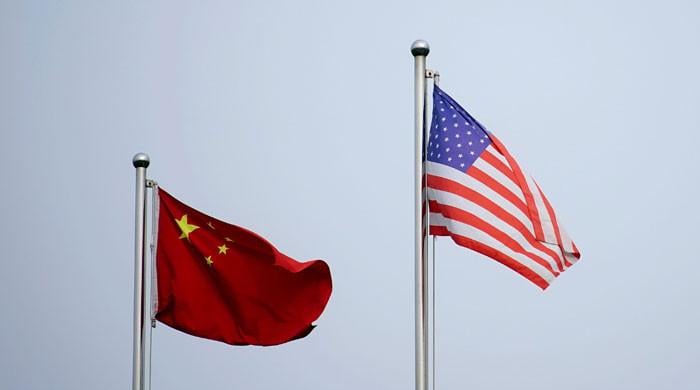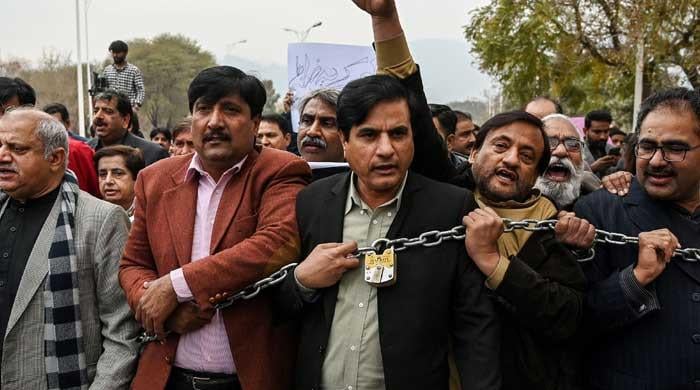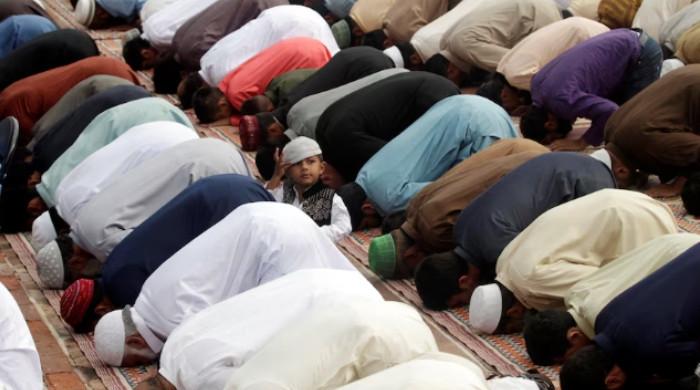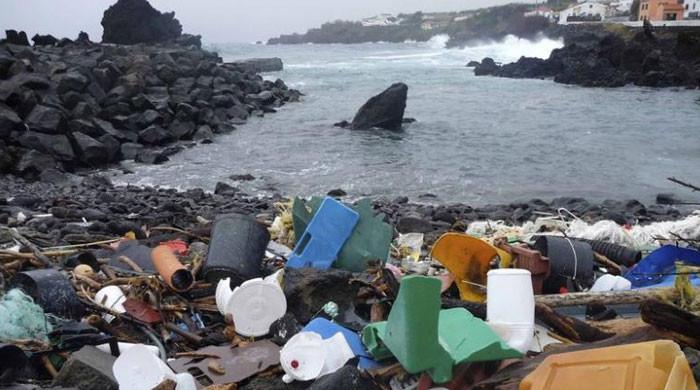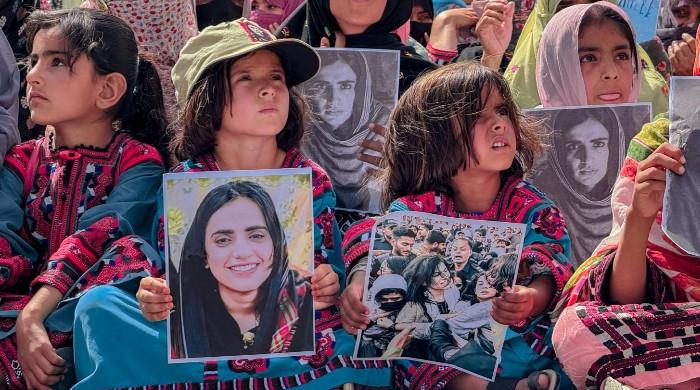Blushes we try to hide
Some would say this is the call of fate when time comes back to haunt and when blushes are visible
April 12, 2025
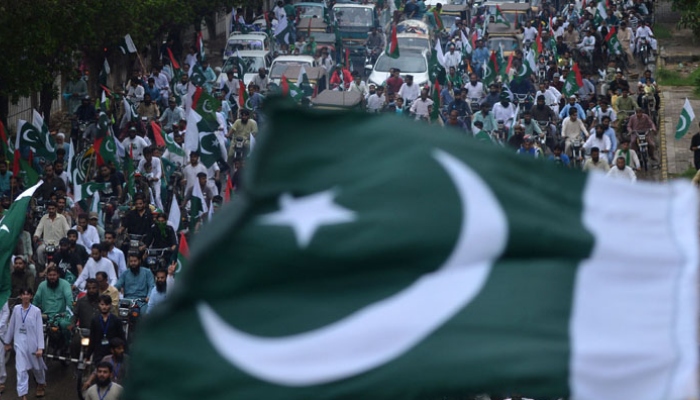
Through the ages, the world has been used to hiding its ugliness behind attractive masks. But, sooner or later, a time comes when this no longer remains possible as black patches start showing like emblems of myriad notoriety-riddled misdeeds.
Some would say this is the call of fate when time comes back to haunt and when blushes are visible, but there is nothing to provide an interregnum from the sordidness of a past. The trek ahead is always bumpy, and the miles to recovery stretch far into the distance.
People before us have experienced this as we do, and probably, all those who follow us in the future will also endure this. Is there no learning from our indulgences, no lessons coming out of mistakes we make, and no wisdom emanating from our brushes with disaster? It looks as if that is a critical failing as we totter along, repeatedly falling prey to familiar behaviour.
While this is so distinctly discernible at an individual level, our collective thought and action patterns hardly provide hope for being any different in the future. We walk right into the pit, banking more on our ill-conceived and misguided infatuation with piling on power rather than garnering some legitimacy to escape the abyss.
When disaster finally falls, we don't handle it as a learning ground to escape similar situations in the future but proclaim it as fait accompli to be endured, blaming those who came earlier to rule the country.
Pakistan provides a minuscule example of this rabid indulgence. From its very inception, it has been used as a receptacle of experimentation driven by an urge to work out a magic potion to push it forward. In the process, it has not only been shorn of its foundational ideals but also stripped of its energy, enthusiasm and every other facet that could have provided it the driving force to surge ahead.
From one cauldron to the next, it has been mercilessly roasted by clueless experimenters who were solely interested in furthering their personal agenda by digging their tentacles deeper.
Instead of becoming the prosperous, progressive and welfare-oriented, and robust country that Pakistan was envisioned to develop into, it has been reduced to being a skeleton of those past dreams. Worse still, there is no realisation of the setbacks suffered as the country continues sliding down.
The problem is now multiple-fold. It is no longer just a challenge to push it forward. It is first to extricate it from the quagmire that it has been sinking into over the past decades. This cannot and will not happen simply by changing the 'drivers' responsible for this debacle. A drastic change of mindset and approach will be needed to do it using modern tools and implements.
Progress will not come by rooting change in repeating the disaster-riddled experiments that we conducted in the past. It will come only if we bury this penchant for experimentation and move into a domain that is driven by a pragmatic and progressive matrix which leaves out the ascendency of individual diktat over collective wisdom, understanding and drive.
The first essential requisite in that direction is the establishment of a rule-of-law-based society and unquestioned subservience of everyone before it. We must accomplish this without any further ado. This is going to be an enormously difficult task as it encompasses convincing people used to working by accumulating power in their persons to forfeit that advantage in favour of a collective and equitable approach that is rooted in the enshrining guidelines provided by reason, logic and pragmatism.
It is only then that a strong and sustainable base will be laid for the collective interest of the state and all its people to take precedence over the power- and pelf-driven disparate ambitions of a few.
Once that is done, the onerous task of reconstruction shall commence.
The past decades have done nothing except cause damage to the idea of an equitable state as enunciated by the Quaid in his maiden address from the floor of the first Constituent Assembly on August 11, 1947: "If you change your past and work together in a spirit that every one of you, no matter to what community he belongs, no matter what relations he had with you in the past, no matter what is his colour, caste, or creed, is first, second, and last a citizen of this state with equal rights, privileges and obligations, there will be no end to the progress you will make".
This was the foundational ethos the newly established state was to promote. But instead of starting such a process earnestly, we busied ourselves with developing a class of parasites who have since sucked every pint of blood from its veins. They have impoverished the state and its people to enrich their personal lot and that of a few cronies perpetually at their service.
We have thus put together a mini beneficiary class of people within the larger national framework who control all levers of financial- and power-based enrichment. The state and the vast bulk of its people continue to suffer immensely at their hands.
It is breaking this logjam that presents the real challenge. Their tentacles are dug in deep, and they are absolutely unwilling to cede their advantageous stature and the bounties they have secured through their years in power to facilitate the process of reforming the state and putting it on the road to emancipation and progress.
Whenever challenged, they resort to using their traditional power base to frustrate the effort. It does not stop there. They proceed to punish those who see the dream of liberating Pakistan from their clutches.
This is the battle that is being currently waged in our midst and on its outcome rests the future of the country. Preservation of the status quo will accelerate the process of nibbling away at an already emaciated body and its depleted stock.
We are bartering our assets to win respite to breathe, but the stocks we have are not unlimited. We'll soon come to a point when we'll be denuded of assets and ideas both. There shall then be no moving forward or turning back.
One is reminded of Faiz Sahib talking about the link being broken somewhere and this being the moment to mourn time. With the state caught up in a spiral of withering away, is that all we are going to be left with to agonise about the loss of a dream?
The writer is a political and security strategist and the founder of the Regional Peace Institute. He is a former special assistant to former PM Imran Khan and heads the PTI’s policy think-tank. He tweets @RaoofHasan
Disclaimer: The viewpoints expressed in this piece are the writer's own and don't necessarily reflect Geo.tv's editorial policy.
Originally published in The News







